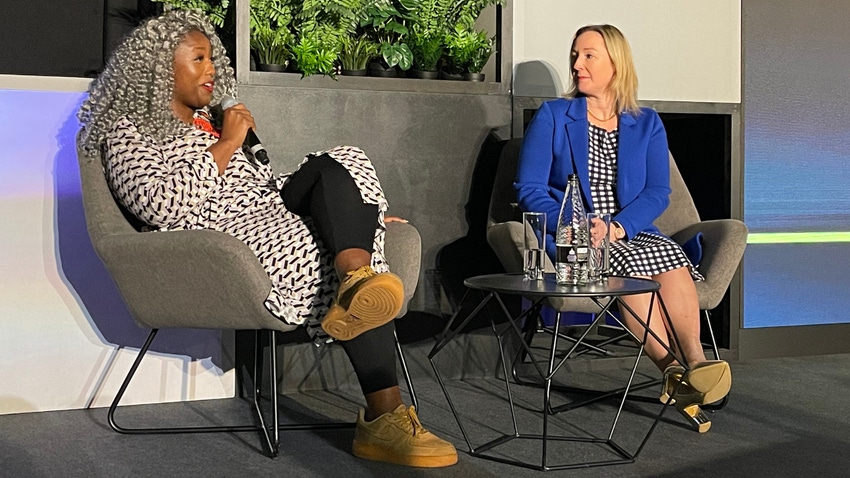AI models must protect against historically embedded biases

At a Glance
- Anne-Marie Imafidon MBE encouraged technologists to include new ideas from a diverse team to tackle challenges of the future.
- Biased data fed into systems today will perpetuate the same biases long after its makers have left the tech space.
People building technologies like AI and machine learning need to go beyond stating they believe in equality but actually engage in equitable practices, according to Stemettes founder Anne-Marie Imafidon MBE.
Imafidon, one of the youngest to graduate from Oxford with a master’s degree in math and computer science, started the Stemettes, a group that helps female and non-binary kids as young as five pursue careers in science, technology, engineering, and math.
Speaking at Tech Show London, she warned that today’s technology systems do not always reflect the society with which these interact.
She cited the example of a fitness app that boasted about its menstrual period tracker function. However, the app’s tracker failed to understand that periods can last longer than 10 days – likely because those behind it did not fully understand what and who they were building for.
“There's value in that understanding of that community. And if we could not hear them in that development process, what else are we not hearing from them when we are talking about things that maybe are not as fundamental and as basic as a period?” Imafidon asked.
“Having that difference of perspective is going to allow you to future-proof the work that you are doing, given that it is not just about the now and whom you have in the room today, but it is about who might be in the room tomorrow, and also who else is in society,” she continued.
The Stemettes founder warned that work needs to be done to address these issues since the data being fed into systems today may contain biases that could perpetuate the same issues in the future.
“Social inequality, for example, is very prevalent across many of the societies that our technology is being used in," she said. This is "reflected in the data that we then feed into the systems we use to make decisions (and) if we are not careful, they might go back and reinforce those social inequalities.”
Imafidon, a trustee for the Institute for the Future of Work, cited the example of retailer using an algorithmic-based system to determine patterns in worker shift, pay and promotions. The system was found to award better pay and shift patterns to some colleagues over others due to underlying biases.
“The unintended consequences of using machine learning … (meant) that there was quite a lot that we have to learn … so we can build a future that ensures more fairness, that is taking us in the right direction and that solves more problems than it is creating.”
Power of STEM for the next generation
Such an education starts early. Imafidon said that schools do not show kids that STEM can be creative, altruistic and diverse in terms of roles and opportunities.
Kids need to be taught that they can have an impact on changing the technology we use. For example, she described social media as "the most embarrassing” thing from a technologist’s perspective as it is a tool where anyone can say anything and there’s a lack of accountability of its creators.
Imafidon instead argued that kids need to be taught that they can potentially help create alternative solutions to existing platforms.
“There is something about having that understanding of, 'it is just a tool that has been built in a particular way'," she said. The youth should be empowered to know "that anyone can build an app” and thus they can improve upon the design decisions made by the creators of existing platforms.
About the Author(s)
You May Also Like


.jpg?width=700&auto=webp&quality=80&disable=upscale)
.jpg?width=700&auto=webp&quality=80&disable=upscale)
.jpg?width=700&auto=webp&quality=80&disable=upscale)
.jpg?width=300&auto=webp&quality=80&disable=upscale)
.jpg?width=300&auto=webp&quality=80&disable=upscale)
.jpg?width=300&auto=webp&quality=80&disable=upscale)

